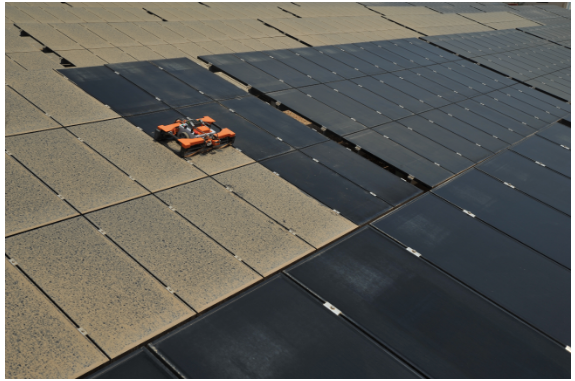Japanese robotics company Miraikikai believes that it may have just changed the game for utility-scale solar plants in arid regions, as its new robot cleaning system can help alleviate the problem of dust and sand covering the modules. Not only that, but the robots do this without water and are totally automated.
Miraikikai has called the new cleaning robot the “Solar Cleaning Robot Type 1,” so it does exactly what it says on the tin. It uses artificial intelligence and has brushes and air blowers that enable it to sweep dust and sand off the modules without using water. Thus making it the world’s first water-free, automated solar cleaning system for utility-scale plants. In addition, the robot is battery-powered, and uses sensors to prevent it from falling from the array, so it does not need any human interference.
Due to the attributes of the cleaner, which will be commercially available from January 2017, Miraikikai says that it is perfect for arid regions and deserts where sand and dust can block sunlight hitting the modules. Additionally, water tends to be a scare resource in these regions, so not needing it for cleaning is highly desirable. Currently, there are three widely used methods, including cleaning by hand, by truck, and robots.
Interestingly, NEXTracker’s CEO Dan Shugar mentioned at the World Future Energy Summit (WFES) this week that these robots had still not reached maturity and might damage the anti-reflective coating of the modules. However, according to Miraikikai, the company conducted an accelerated 20-year durability test with a Japanese PV module manufacturer, which found that the robots did not damage the coating.
This content is protected by copyright and may not be reused. If you want to cooperate with us and would like to reuse some of our content, please contact: editors@pv-magazine.com.



Excellent!